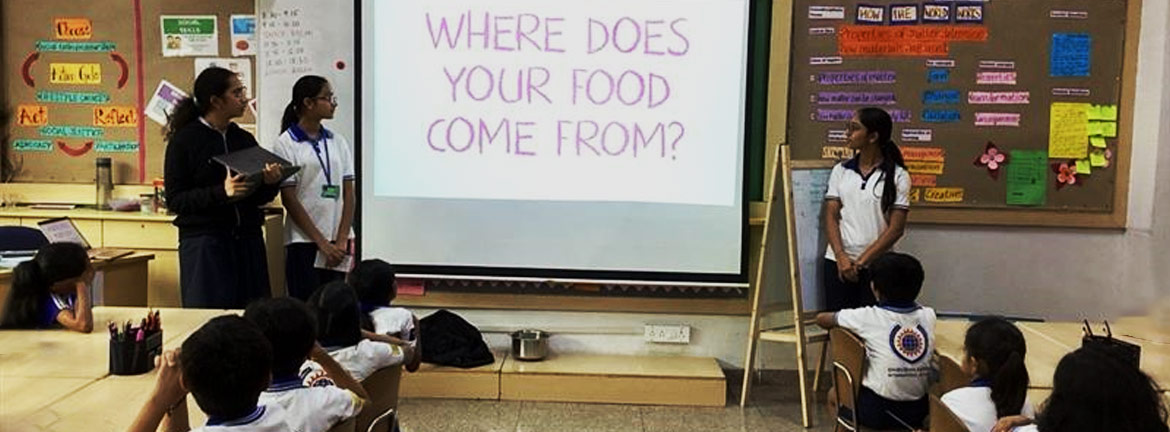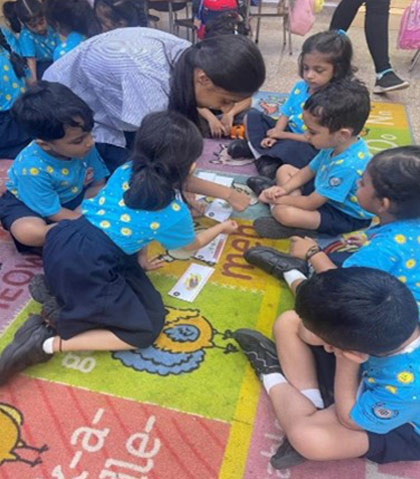
World Food Day stands as a beacon of hope in the global struggle against hunger, food wastage, and unequal access to nutrition. It serves not just as a date on the calendar but as a poignant reminder of our collective responsibility to address these pressing issues. Initiatives like World Food Day emerge as crucial platforms for raising awareness.
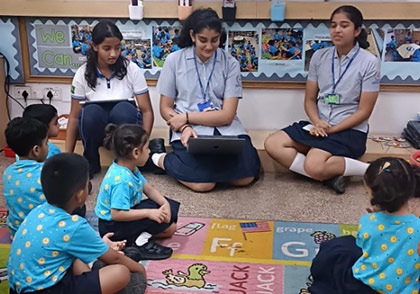
Celebrated annually on 16th October, this year, the World Food Day leaders focused on tracking where our food comes from, zero hunger and reducing inequality in distribution of food to align the initiatives to the UN Sustainable Development Goals. The leaders worked in different groups to raise awareness in each age group in a comprehensive manner, planning interactive and engaging activities each age category.
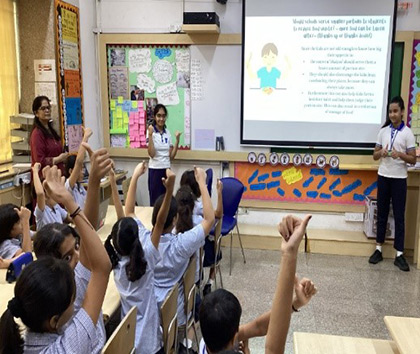
The goal for the primary level was to educate young learners about the various stages that food goes through before it reaches their kitchen and finally to their plates. The aim was to get the younger students reflect upon the time spent into growing and processing food to encourage and stop food wastage daily.
Focussing on the age group, leaders chose fries, a popular food type and loved by everyone and prompted discussions involving the process of preparing fries, stopping food wastage, and fostering a deeper understanding on the effort in making food available to all - ‘farm to fries.’ The students reflected using the example of fries to understand why every food item consumed should not be wasted.
The objective for the middle school sector was to inform students about the issue of food wastage, and its global implications. Using debatable questions enabled middle years students think about various aspects of food wastage, its disposal and how food wastage in a region impacts the world. Students reflect on their actions before wasting their food and were mindful of smaller portions of serving in the cafeteria. With carefully planned sessions the various activities in the World Food week, aimed at helping students to understand the intensity of this global issue in the world and recognizing the urgency of attaining UNSDG-2 of 'Zero hunger' by the end of this decade.
In senior school, the prime focus was on food inequality, a relatively unknown and untouched subject; especially the stark differences in food options for people from poor economic or geographical backgrounds that hindered their access to food, in comparison to others who were fortunate enough to always have enough on their plate, thus ignorant of food crisis across some parts of the world.
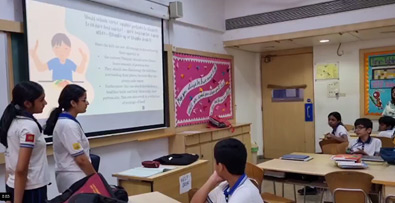
At every level across school, the student leaders highlighted prevention techniques to curb food wastage and provided them a fresh perspective of food being a ‘finite resource’ that needs to be used wisely. The focus was on understanding the negative impacts of food wastage and to identify simple techniques to prevent wastage or rotting of food, valuing the effort put in growing crops or in manufacturing a food product was actioned upon.
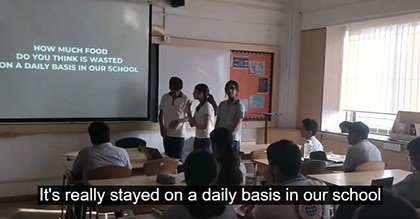
Planning WFD awareness modules: The planning process included senior leaders interviewing students with questions related to food. Student leaders curated pre-recorded videos of student interviews as introduction to the World Food Day theme. Additionally, inclusion of a video displaying statistical evidence on the prevalent problem in rural areas, interviews demonstrating the students’ current perspective on the problem, and ways to help combat this inequality firstly at a school level by involving students from all grades in the role of problem solvers fostered greater understanding in the role each one played in mitigating the inequality in food distribution. Student reflections in the form of exit tickets helped us measure the success of module as a positive change in approach towards everything related to the idea of food before and after the awareness week.
- Team WFD

